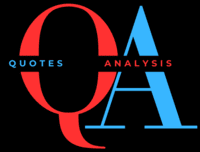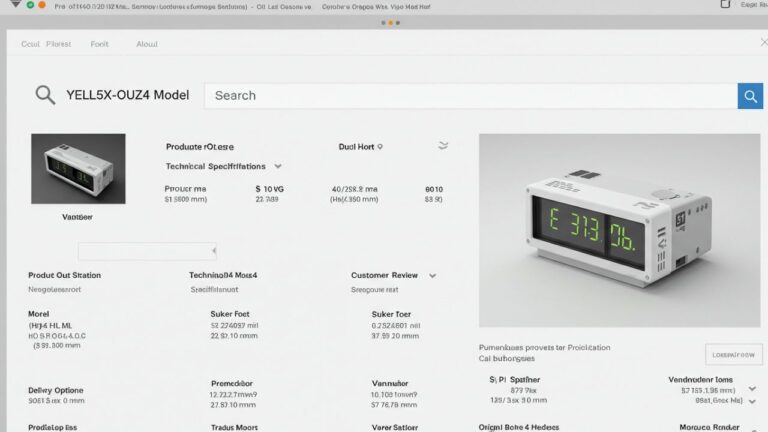
Meridian Smart Square
Introduction to Next-Generation Space Management
The Meridian Smart Square represents a revolutionary approach to space utilization that combines cutting-edge technology with human-centered design principles for optimal efficiency. Organizations worldwide increasingly face challenges related to space management, resource allocation, and operational costs in rapidly evolving work environments. Furthermore, traditional approaches to workspace design often fail to address the dynamic nature of modern work patterns and employee preferences. Additionally, the accelerating trends toward hybrid work models demand more flexible, data-driven solutions for managing physical spaces effectively. Moreover, companies seek innovative ways to maximize their real estate investments while simultaneously improving employee experience and productivity. Consequently, the Meridian Smart Square emerges as a comprehensive solution that transforms how organizations conceptualize, monitor, and optimize their physical environments through intelligent technology integration.
The Evolution of Workspace Management Technologies
Workspace management technologies have undergone remarkable transformation over recent decades, evolving from simple booking systems to sophisticated ecosystems of interconnected smart solutions. Early space management systems primarily focused on basic reservation capabilities without addressing the broader context of workspace utilization or employee preferences. Furthermore, second-generation systems introduced limited analytics but lacked the comprehensive integration necessary for truly optimized environments. Additionally, the rapid acceleration of digital transformation initiatives across industries created new possibilities for gathering and analyzing workspace utilization data. Moreover, advancements in sensor technologies, artificial intelligence, and cloud computing established the foundation for more sophisticated approaches to space management. Consequently, these technological developments converged to create the conditions for solutions like Meridian Smart Square to emerge as comprehensive platforms rather than isolated point solutions.
Core Features of the Meridian Smart Square Platform
The Meridian Smart Square platform incorporates numerous powerful features designed to address multiple dimensions of workspace management simultaneously through an integrated approach. Real-time occupancy monitoring provides accurate, up-to-the-minute data about space utilization across various facility types and configurations. Furthermore, predictive analytics capabilities help organizations anticipate future space requirements based on historical patterns and emerging trends. Additionally, interactive floor plans enable users to visualize space availability and make informed decisions about resource allocation and workspace selection. Moreover, comprehensive reporting tools generate actionable insights for facilities managers, real estate teams, and organizational leadership. Consequently, these integrated capabilities transform space management from a reactive administrative function to a strategic organizational advantage that supports broader business objectives through data-driven decision making.
Advanced Analytics for Data-Driven Decisions
The analytics capabilities within Meridian Smart Square transform raw occupancy data into actionable intelligence that drives strategic space planning and resource allocation decisions. Machine learning algorithms continuously analyze utilization patterns to identify trends, anomalies, and opportunities for optimization across different spaces and timeframes. Furthermore, comparative analytics allow organizations to benchmark performance across multiple facilities or against industry standards to identify improvement opportunities. Additionally, customizable dashboards present data visualizations tailored to different stakeholder needs, from granular operational details to executive-level summaries. Moreover, scenario modeling tools enable planners to evaluate potential configuration changes before implementing them physically. Consequently, these sophisticated analytics capabilities empower organizations to make more informed decisions about their physical spaces while maximizing return on their real estate investments.
Enhancing Employee Experience Through Smart Technology
Meridian Smart Square significantly enhances employee experience by creating more responsive, user-friendly environments that adapt to individual preferences and work requirements. Intuitive mobile applications allow employees to locate available spaces, book resources, and navigate facilities without frustration or unnecessary delays. Furthermore, personalization features remember individual preferences and make contextually relevant recommendations based on past behaviors and stated priorities. Additionally, environmental controls integrate with the platform to adjust lighting, temperature, and other factors based on occupancy and user preferences. Moreover, the solution facilitates improved collaboration by helping teams identify and secure appropriate spaces for different types of group activities. Consequently, these employee-centered features contribute to higher satisfaction levels, improved productivity, and enhanced talent attraction and retention in competitive labor markets.
Implementation Strategies for Organizational Success
Organizations achieve the greatest benefits from Meridian Smart Square when they implement the solution through carefully planned, phased approaches that address both technical and human factors. Initial assessment processes document current space utilization patterns, pain points, and organizational requirements to establish clear baseline measurements and improvement targets. Furthermore, cross-functional implementation teams ensure representation from facilities management, information technology, human resources, and business unit leadership. Additionally, pilot deployments in selected areas allow organizations to refine their approach before full-scale implementation across all facilities. Moreover, comprehensive change management programs address potential employee concerns and provide necessary training to maximize adoption rates. Consequently, these strategic implementation approaches significantly increase success rates and accelerate time-to-value for organizations deploying the Meridian Smart Square solution.
Integration Capabilities with Existing Systems
Meridian Smart Square offers extensive integration capabilities that allow the platform to connect seamlessly with existing enterprise systems, creating a unified technology ecosystem for facilities management. Standard APIs enable connections with human resource information systems, employee directories, and identity management platforms to maintain accurate user information automatically. Furthermore, calendar system integrations synchronize meeting room bookings across platforms to prevent conflicts and maximize resource availability. Additionally, building management system connections allow intelligence gathered from the platform to inform heating, ventilation, and lighting controls for improved energy efficiency. Moreover, mobile device integration extends platform accessibility beyond desktop environments to support increasingly mobile workforces. Consequently, these integration capabilities maximize the value of existing technology investments while creating more comprehensive workspace management solutions.
Sustainable Design and Environmental Impact
Meridian Smart Square contributes significantly to sustainability objectives by optimizing resource utilization, reducing energy consumption, and supporting environmentally responsible facilities management practices. Occupancy data enables more precise climate control that reduces unnecessary heating and cooling of unoccupied spaces, substantially decreasing energy consumption and associated carbon emissions. Furthermore, utilization analytics help organizations right-size their real estate footprints, potentially reducing overall space requirements and associated environmental impacts. Additionally, resource management features minimize waste through more efficient allocation of shared assets and supplies across the organization. Moreover, sustainability dashboards provide visibility into environmental impacts and progress toward corporate sustainability goals. Consequently, organizations increasingly implement Meridian Smart Square as a key component of their broader environmental initiatives and corporate social responsibility programs.
Security and Privacy Considerations
The Meridian Smart Square platform incorporates comprehensive security and privacy features that protect sensitive organizational data while respecting individual privacy concerns in increasingly monitored environments. Enterprise-grade encryption safeguards all data during transmission and storage, preventing unauthorized access to sensitive occupancy and utilization information. Furthermore, role-based access controls ensure users can only view and modify data appropriate to their organizational responsibilities and permissions. Additionally, anonymization options allow for aggregate data analysis without tracking individual employee movements when such granularity proves unnecessary. Moreover, transparent privacy policies inform users about data collection practices and usage limitations. Consequently, these robust security and privacy features address critical concerns that might otherwise present barriers to implementation in security-conscious organizations or highly regulated industries.
Case Studies: Transformation in Action
Organizations across diverse industries have successfully implemented Meridian Smart Square to transform their approaches to space management with remarkable results that demonstrate the solution’s versatility and effectiveness. A multinational financial services firm reduced real estate costs by 18% through more efficient space utilization while simultaneously improving employee satisfaction scores regarding workspace availability. Furthermore, a healthcare organization optimized clinical space allocation, increasing patient throughput by 12% without expanding their physical footprint or extending operating hours. Additionally, a technology company leveraged occupancy insights to redesign collaboration spaces, resulting in measurable improvements in team productivity and innovation metrics. Moreover, a government agency implemented the solution across multiple facilities, achieving substantial energy savings and progress toward sustainability mandates. Consequently, these diverse implementation examples illustrate the platform’s adaptability across different organizational contexts and objectives.
Future Trends in Smart Space Management
The field of smart space management continues evolving rapidly, with several emerging trends likely to shape future developments of platforms like Meridian Smart Square in response to changing workplace dynamics. Artificial intelligence capabilities will increasingly enable predictive recommendations that anticipate needs before users explicitly express them, creating more proactive space management approaches. Furthermore, augmented reality integrations will enhance wayfinding and space visualization through immersive experiences accessible via smartphones and wearable devices. Additionally, environmental wellness features will expand to incorporate more health-focused elements like air quality monitoring, circadian lighting systems, and biophilic design principles. Moreover, autonomous systems will increasingly manage routine adjustments without human intervention based on established parameters and organizational policies. Consequently, these advancements will further transform how organizations conceptualize and manage their physical environments in increasingly digital workplaces.
Addressing Implementation Challenges
Organizations typically encounter several challenges when implementing comprehensive solutions like Meridian Smart Square, requiring thoughtful approaches to ensure successful adoption and value realization. Technical infrastructure limitations sometimes necessitate upgrades to network capacity, sensor deployments, or other foundational elements before full implementation becomes possible. Furthermore, employee concerns about privacy and monitoring require transparent communication about data usage and clear articulation of benefits to address potential resistance. Additionally, integrating the solution with legacy systems sometimes presents compatibility challenges that require additional middleware or customization efforts. Moreover, demonstrating return on investment demands careful baseline establishment and consistent measurement methodologies. Consequently, organizations achieve greater implementation success when they anticipate these challenges and develop mitigation strategies before beginning their Meridian Smart Square deployment.
Customization Options for Diverse Environments
Meridian Smart Square offers extensive customization capabilities that enable organizations to tailor the platform to their specific requirements across diverse physical environments and use cases. Industry-specific templates provide starting points for common deployment scenarios in healthcare, education, corporate, government, and retail environments with relevant predefined metrics and workflows. Furthermore, custom reporting options allow organizations to design analytics views that align perfectly with their specific key performance indicators and management priorities. Additionally, branding features enable consistent visual identity throughout the user interface, reinforcing organizational culture through the digital experience. Moreover, configurable workflows adapt to different approval processes, booking policies, and resource management approaches across organizations. Consequently, these customization capabilities ensure the platform can accommodate unique organizational requirements without expensive custom development or compromised functionality.
Training and Adoption Strategies
Successful Meridian Smart Square implementations typically include comprehensive training and adoption programs that help users maximize platform benefits while minimizing disruption during transition periods. Role-based training modules address the specific needs of different user groups including administrators, facility managers, department leaders, and general employees. Furthermore, digital adoption tools provide contextual guidance within the application itself, reducing the learning curve for new users and supporting retention of less frequently used features. Additionally, champion networks identify enthusiastic early adopters who can provide peer support and demonstrate practical benefits to colleagues within their departments. Moreover, phased functionality rollouts prevent overwhelming users with too many new capabilities simultaneously. Consequently, these structured approaches to training and adoption significantly increase utilization rates and accelerate time-to-value for Meridian Smart Square implementations.
Return on Investment Considerations
Organizations implementing Meridian Smart Square typically realize return on investment through multiple value streams that combine direct cost savings with productivity improvements and strategic advantages. Real estate optimization frequently generates the most visible financial returns through reduced square footage requirements, more efficient space utilization, and potential consolidation of facilities. Furthermore, operational efficiency improvements reduce administrative overhead associated with space management, booking conflicts, and resource allocation. Additionally, energy consumption reductions create ongoing utility cost savings while simultaneously supporting sustainability objectives. Moreover, improved employee productivity resulting from better space allocation and reduced time spent searching for appropriate workspaces contributes significant value though sometimes proves more challenging to quantify precisely. Consequently, comprehensive ROI assessments should incorporate both quantitative metrics and qualitative benefits when evaluating Meridian Smart Square implementations.
Competitive Landscape and Market Positioning
Meridian Smart Square operates within a competitive landscape of workspace management solutions that vary considerably in their capabilities, target markets, and technological approaches. Point solutions offer specialized functionality for specific aspects of space management like meeting room booking or hot desk allocation without the comprehensive integration of full platforms. Furthermore, enterprise resource planning system modules provide basic space management capabilities but typically lack the specialized features and depth of purpose-built solutions. Additionally, building management system extensions offer physical infrastructure control but generally provide limited user experience features or advanced analytics. Moreover, emerging startups introduce innovative approaches but sometimes lack the organizational stability and support infrastructure required by enterprise customers. Consequently, Meridian Smart Square differentiates itself through comprehensive functionality, enterprise readiness, and demonstrated implementation success across diverse organizational contexts.
Summary: Transforming Spaces for the Future
The Meridian Smart Square represents much more than a technological solution—it embodies a fundamental transformation in how organizations conceptualize, manage, and optimize their physical environments. This comprehensive platform combines sophisticated analytics, intuitive user experiences, and powerful integration capabilities to address the complex challenges of modern space management. Furthermore, organizations implementing the solution routinely report significant improvements across multiple dimensions including cost efficiency, employee satisfaction, and environmental sustainability. Additionally, the platform’s ongoing evolution ensures adopters benefit from continuous innovation as workplace requirements continue evolving in response to changing business conditions and employee expectations. Moreover, successful implementations demonstrate how technology can enhance rather than replace the human elements of workplace experience. Consequently, forward-thinking organizations increasingly view Meridian Smart Square as an essential component of their broader digital transformation initiatives and workplace strategies for an increasingly flexible and dynamic future.






